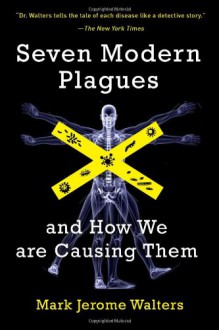Epidemiologists are braced for the big one: the strain of flu that rivals the pandemic of 1918-1919, which killed at least 20 million people worldwide. In recent years, we have experienced scares with a host of new influenza viruses: bird flu, swine flu, Spanish flu, Hong Kong flu, H5N1, and most...
show more
Epidemiologists are braced for the big one: the strain of flu that rivals the pandemic of 1918-1919, which killed at least 20 million people worldwide. In recent years, we have experienced scares with a host of new influenza viruses: bird flu, swine flu, Spanish flu, Hong Kong flu, H5N1, and most recently, H5N7. While these diseases appear to emerge from thin air, in fact, human activity is driving them. And the problem is not just flu, but a series of rapidly evolving and dangerous modern plagues. According to veterinarian and journalist Mark Walters, we are contributing to—if not overtly causing—some of the scariest epidemics of our time. Through human stories and cutting-edge science, Walters explores the origins of seven diseases: mad cow disease, HIV/AIDS, Salmonella DT104, Lyme disease, hantavirus, West Nile, and new strains of flu. He shows that they originate from manipulation of the environment, from emitting carbon and clear-cutting forests to feeding naturally herbivorous cows “recycled animal protein.” Since Walters first drew attention to these “ecodemics” in 2003 with the publication of Six Modern Plagues, much has been learned about how they developed. In this new, fully updated edition, the author presents research that precisely pinpoints the origins of HIV, confirms the link between forest fragmentation and increased risk of Lyme disease, and expands knowledge of the ecology of West Nile virus. He also explores developments in emerging diseases, including a new chapter on flu, examining the first influenza pandemic since the Hong Kong flu of 1968; a new tick-borne infection in the Mid-West; a second novel bird flu in China; and yet a new SARS-like virus in the Middle East. Readers will not only learn how these diseases emerged but the conditions that make future pandemics more likely. This knowledge is critical in order to prevent the next modern plague.
show less

